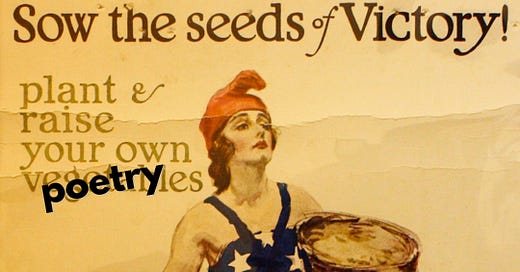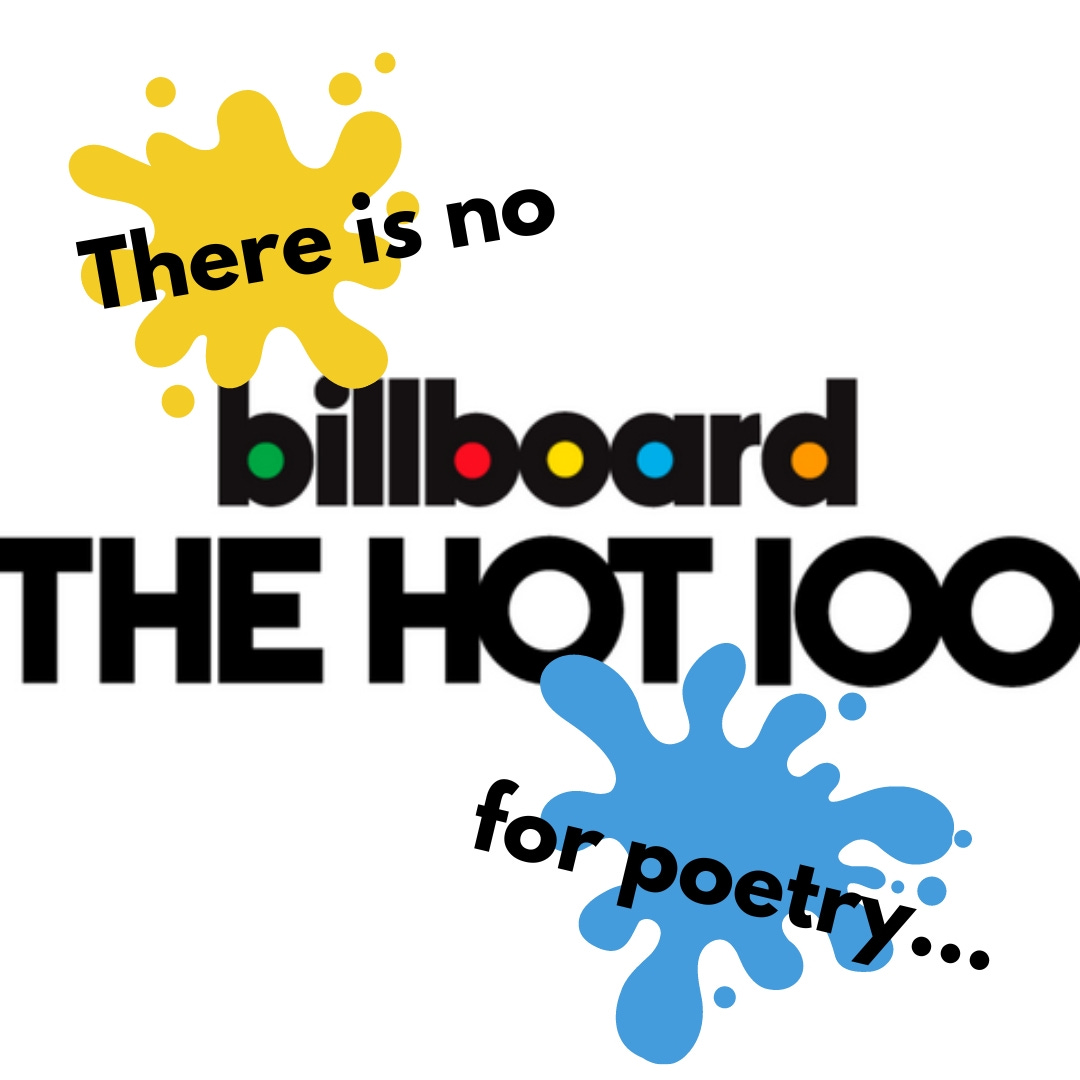Definition from Wikipedia… Victory gardens, also called war gardens or food gardens for defense, were vegetable, fruit, and herb gardens planted at private residences and public parks in the United States, United Kingdom, Canada, Australia and Germany during World War I and World War II. In wartime, governments encouraged people to plant victory gardens not only to supplement their rations but also to boost morale.
Hello dear friends,
Being a poet (especially a self-taught one like yours truly) is a lot like being a gardener, tending to our words, thoughts and verses from our soil of experience, and the poems that result from them.
Although creativity is a fickle flow which comes and goes, we’re connected to the Universal Mind, the source of all inspiration, for which we get “downloads” all the time; it’s only a matter of finding ways to leave ourselves open to them. Sometimes, they might happen first thing in the morning when you’re still waking up from sleep and you’re still in that alpha brain-wave pattern. Other times it could be while you’re walking, whether on a busy street downtown or walking through the woods. Or maybe at your day job and your subconscious mind suddenly kicks in with a thought for better or for verse (lol, very punny).
Our poems are our creative produce, and like any fruit or vegetable, poems need time to ripen on their respective mental vines. You can't pluck a poem from your mind the moment you plant the seed of an idea. You have to let it simmer, percolate in your subconscious mind until the time when it’s ripe and ready. Then you put it on paper or screen, working and reworking it. It’s like that old saying “when the fruit is ripe, it will fall.” This applies to poetry as well as all the other creative arts.
As poets, we must be patient gardeners, tending to our ideas and verses with care. Some pieces may take weeks, months, or even years to reach their full potential. It's part of the creative journey, which, like nature, has its own seasons. We also have to be mindful of what we’re feeding our gardens; what are you reading, what videos, movies, TV shows are you watching? You have to be mindful of whether you’re feeding off propaganda from the enemedia or truth from reliable sources.
And now a word about Instagram poems. I’ve come to know about them fairly recently and even created an account to experiment with this platform to see what the hullabaloo is about. Did you know there are “Insta poets” who have 1000s of followers? Not really surprising given how our attention spans have been shortened with the glut of social media mavens clamoring to feast on our eyeballs.
I’ve come to find Instagram poems are like the snacks of the poetry world. But does an IG poem have the same emotionally nutritional value as say a poem by Keats, Dylan Thomas or e.e. cummings? A lot of IG poems are a kind of poetato chip, if you will; and my question is whether something like that will leave a lasting impression on your consciousness as opposed to say, Whitman’s Song of Myself, or Guillaume Apollinaire’s Zone, Pasolini’s A Desperate Vitality, Poe’s The Raven, etc.? I really don’t mean to be harsh. Even the ancient Greek and Roman poets wrote what were called “fragments” and perhaps this is the digital equivalent. Emotional fragments chipped off people’s souls floating in the fiber-optic greenish glow of cyberspace.
However, we’re not microwaving poetry for two minutes and expecting them to be ready to eat. I mean, if you want to serve up poetic hot pockets, that’s your call. And as long as people call that poetry, that’s going to be the highest level against which poetry’s value will be measured and expressed. My position as a self-taught poet is different; it’s to carry on a certain “tradition of expression” (that’s the best way I can put it for now) which I picked up from poets whose work I love and am inspired by.
I totally get it. You want to share your feelings with the world; to get some validation that you’re not crazy, perhaps to be “discovered” in some way (you may want to refer to my poem RCAA* about the likelihood of that happening). That’s totally fine, but know that everything has it’s appointed time, just like a human fetus takes 9 months to gestate, so too, you need to give your poems the proper time to gestate into a full-grown poem. You don’t want to say, “Hey check out my verbal fetus!” People will just be nice and hit the “Like” button as a courtesy, if that.
In the end, it's not about how quickly we churn out poems; there’s not a Billboard hot 100 that we’re looking to get on (although that could be kind of a cool idea, now that I think of it – ah, if only poetry were that popular!).
It's about how much truth, beauty and goodness you can convey by compressing them into words. Con-verse-ly, you can over analyze a poem to pieces until you hit the wall of analysis paralysis. So, at some point, if you’ve been holding back that arrow, you’re going to have to let it fly.
Here’s the thing; you’re leaving a trail of poetic popcorn in your wake. Ask yourself if this is the trail you want to be remembered for?
So for us budding, self-taught poets, footsoldiers in the ImagiNation Army, our mission is to tend to our poetical gardens during this newfangled wartime we’re living through, and who knows, perhaps someday, with patience, diligence and vigilance, we will experience Victory.







Thanks so much for the restack @Paul Wittenberger. Really appreciate you 🙏🙏🙏
Wow, I’m with you on all of this, yet you give me your perspective which is unique and valuable. Thank you so much. What an honor it is to be in this community with you.